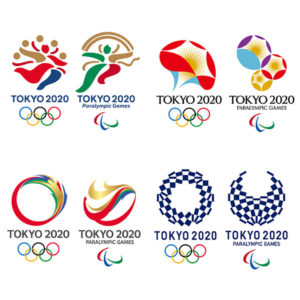And Why Design Contests are Bad for Clients
An international design competition was launched late last year to design the logos for the Olympic and Paralympic games in 2020, after the original logo by Japanese designer Kenjiro Sano was scrapped by Olympic organizers amid claims of copying from the Belgian designer Olivier Debie.
It’s surprising that after the very public scandal, the Tokyo Olympics committee thought it wise to hold a design contest to solve their logo dilemma, a prime example of compounding one mistake with another. Going with a logo that was not cleared from copyright was an honest lapse that can be forgiven, but instead of searching out other, reputable design firms to work on a new direction, they headed down the deep dark hole of design competitions.

Transparency Needed
The design competition issued by the Tokyo Olympics received over 14,000 submissions, an almost obscene number to think about having to judge. If a judge spent 30 seconds looking at each submission it would take them over 7 weeks of work to look at each one. Trying to find this diamond in the rough must have been a grueling competition of it’s own, not to mention the process surely weeded out designs that probably had potential but just needed revisions.
And the winner is…Nobody!
At the end of the competition, the Olympic committee shared only the designs of the four finalists. We should acknowledge that the winning design has a lot of merit, and should provide a good platform for the multitude of variations necessary for the Olympic games. But as a matter of opinion, the runners-up all show a lack of focus and finesse; they have that muddy, mushy quality that makes you ask, what exactly are we looking at? It is well known that with a logo, less is more, and these runner-up entries all make you appreciate and wonder what a professional design firm (or several) could have created.
This outcome is often what you get from people who are not fully invested in the final product. Design competitions are like playing the lotto except that instead of handing a dollar to a cashier and putting a ticket in your wallet, you sell your creative soul to the devil for a near impossible chance at pseudo greatness.
